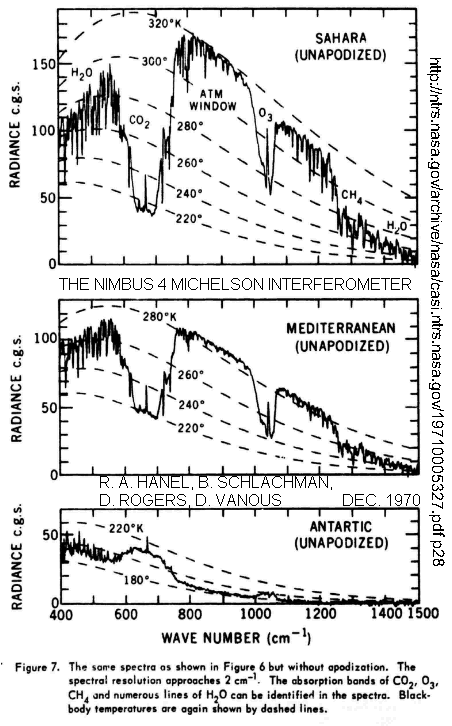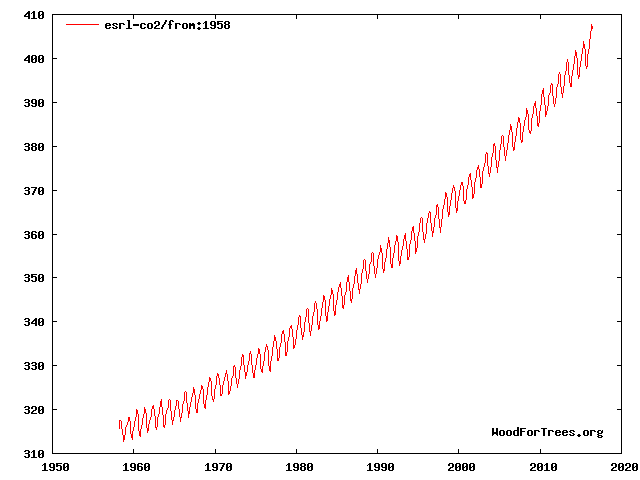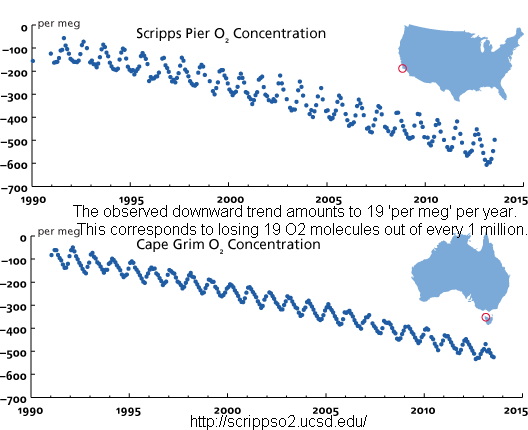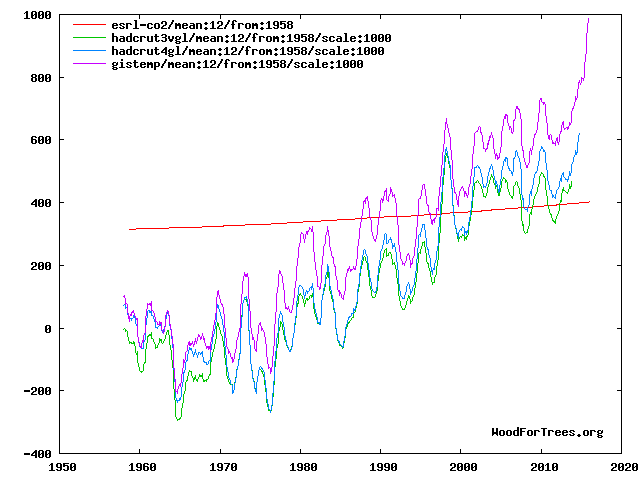It looks like you're using an Ad Blocker.
Please white-list or disable AboveTopSecret.com in your ad-blocking tool.
Thank you.
Some features of ATS will be disabled while you continue to use an ad-blocker.
share:
a reply to: Zanti Misfit
Does the UN conduct mining operations anywhere?
But wouldn't 3He make more sense? I hear it's the happening thing.
Does the UN conduct mining operations anywhere?
But wouldn't 3He make more sense? I hear it's the happening thing.
edit on 11/3/2017 by Phage because: (no reason given)
a reply to: BlissSeeker
Would that be the same UN as in this report?
Or this one?
www.world-nuclear-news.org...
Would that be the same UN as in this report?
United Nations News Centre - Japan's 2011 nuclear disaster 'unlikely ... www.un.org/apps/news/story.asp?NewsID=45058 May 31, 2013 - Radiation leaked after Japan's Fukushima nuclear disaster in 2011 is unlikely to make the general public and the majority of workers sick, ...
Or this one?
UN reports on Fukushima radiation 02 April 2014 The major UN report on the health impacts of the Fukushima accident concluded that any radiation-induced effects would be too small to identify. People were well protected and received "low or very low" radiation doses.
www.world-nuclear-news.org...
edit on pm1130pmFri, 03 Nov 2017 22:32:00 -0500 by antar because: (no reason given)
originally posted by: Zanti Misfit
a reply to: BlissSeeker
Total BS without Exact Scientific Evidence . Has the UN also started Mining Green Cheese on the Moon yet ?
It's all in the public record to see. Here are two for you:
UAH lower troposphere data:
1970s Mean : -0.284583 (1978 & 1979)
1980s Mean : -0.142167
1990s Mean : 0.00125
2000s Mean : 0.10425
2010s Mean : 0.223583 (through May 2017)
Radiosonde surface data going back to 1958, which shows a much larger change:
1950s mean: -0.05 (1958 & 1959)
1960s mean: -0.118
1970s mean: -0.13
1980s mean: 0.06
1990s mean: 0.185
2000s mean: 0.352
2010s mean: 0.739 (through 2016)
originally posted by: Greven
In this case, the people being Orwellian are those who are saying humans are not responsible for climate change / that we aren't warming, when all conceivable evidence says otherwise.
Except that not all "conceivable" evidence says otherwise. Just some people such as yourself like to say so. The reality is the evidence is not conclusive one way or the other (as to whether what is happening is man-made or naturally cyclic) - and there are corrupt powers that seek to profit on both sides of the isle by selling their agenda - without consideration of the truth.
The fact is we haven't been around long enough to have a definitive answer. More research is needed without letting political and corporate agendas interfering - which seems to be increasingly difficult to achieve.
Brb living in a 1000sqft house while all of the " lawmakers" live in mansions and fly private 🖕.
Paris accord is based on establishing no more than +2C and current models suggest if we do nothing we will not hit +2C, so they win no matter if they
spend O monies or 15 trillion. Also, there is zero retaliation if a county signs up and stills just pollutes as crazy. What this means is the US would
pay the most but countries like China and Russia can do as they want and there is no repercussion, and we spend billions for that.
Gore's vision is flawed, it is about making billions, restricting nations and get basically the same thing. What people do not think about is technology will over come all this with go old capitalism as new cleaner techs become the better way. We saw this with the horse that reach a level of critical environmental disaster and the car came along and the horse went away... Batteries and other hi tech energy will solve this too in time...this is what it is all about... 15 trillion now make a few people richer, or just let tech over come it for free....
One thing that really isn't discussed is all the other major causes to climate change. Until we can control ocean currents and the sun we are stuck with climate change. I'm sure humans were cause of the the sharia desert that went from a green environment to a wasteland, as example.
Gore's vision is flawed, it is about making billions, restricting nations and get basically the same thing. What people do not think about is technology will over come all this with go old capitalism as new cleaner techs become the better way. We saw this with the horse that reach a level of critical environmental disaster and the car came along and the horse went away... Batteries and other hi tech energy will solve this too in time...this is what it is all about... 15 trillion now make a few people richer, or just let tech over come it for free....
One thing that really isn't discussed is all the other major causes to climate change. Until we can control ocean currents and the sun we are stuck with climate change. I'm sure humans were cause of the the sharia desert that went from a green environment to a wasteland, as example.
a reply to: Xtrozero
Source?
and current models suggest if we do nothing we will not hit +2C,
We do, as individuals, produce far more CO2 than any other nation.
What this means is the US would pay the most
A fan of the mythology of Tesla are you?
15 trillion now make a few people richer, or just let tech over come it for free...
The Sun has been changing a lot, has it? You don't understand the concept of radiative forcing?
Until we can control ocean currents and the sun we are stuck with climate change.
edit on 11/4/2017 by Phage because: (no reason given)
a reply to: CB328
I can't believe there are people dumb enough to actually believe in climate change with practically no evidentiary basis for it being man-made at all and very little for even existing when you look at all of the falsifying and lying that's been done.
Actually yes I can believe there are people dumb enough. There are people dumb enough to drive slow in the fast lane and not use their turn signal so of course there are people dumb enough to fall for a scientific conspiracy
Jaden
I can't believe there are people dumb enough to actually believe in climate change with practically no evidentiary basis for it being man-made at all and very little for even existing when you look at all of the falsifying and lying that's been done.
Actually yes I can believe there are people dumb enough. There are people dumb enough to drive slow in the fast lane and not use their turn signal so of course there are people dumb enough to fall for a scientific conspiracy
Jaden
a reply to: Masterjaden
China, yes.
India, no.
www.statista.com...
So, how come we each burn so much more than each of them do?
And we do, as a country, produce far less than China or India.
China, yes.
India, no.
www.statista.com...
So, how come we each burn so much more than each of them do?
edit on 11/4/2017 by Phage because: (no reason given)
originally posted by: ParasuvO
Oh noes...things may be getting warmer...get me out of here before i suffer.
There you go. The entire anti-CC argument in one fell sentence.
Has absolutely NO idea what it means, just he'll need to have his aircon 3 degrees higher.
Yep....
originally posted by: Phage
a reply to: Masterjaden
And we do, as a country, produce far less than China or India.
China, yes.
India, no.
www.statista.com...
So, how come we each burn so much more than each of them do?
Because they're idiots who have no personal wealth, that's why.
In China the average citizen lives in a box. In India, they are also crammed in like sardines.
The water levels rising are of NO threat to us. It will happen so slowly, if at all, that it will be barely noticeable and we could quickly react to it.
And you solve our energy problem not by restricting the economies of the world, but by setting them free to unleash innovation.
a reply to: Tempter
I've noticed already. And will probably have to increase the height of my seawall at some point, which I can ill afford. But I'm lucky, it won't be affecting my fresh water supply. Can't say the same for many, many others.
The water levels rising are of NO threat to us. It will happen so slowly, if at all, that it will be barely noticeable and we could quickly react to it.
You mean by encouraging research and investment in the development of alternate energy sources instead of deregulating horse and buggy industries that produce not only CO2 but other nasty crap? Sounds good to me.
And you solve our energy problem not by restricting the economies of the world, but by setting them free to unleash innovation.
edit on 11/4/2017 by Phage because: (no reason given)
originally posted by: Navieko
originally posted by: Greven
In this case, the people being Orwellian are those who are saying humans are not responsible for climate change / that we aren't warming, when all conceivable evidence says otherwise.
Except that not all "conceivable" evidence says otherwise. Just some people such as yourself like to say so. The reality is the evidence is not conclusive one way or the other (as to whether what is happening is man-made or naturally cyclic) - and there are corrupt powers that seek to profit on both sides of the isle by selling their agenda - without consideration of the truth.
The fact is we haven't been around long enough to have a definitive answer. More research is needed without letting political and corporate agendas interfering - which seems to be increasingly difficult to achieve.
You don't know crap about me. I've provided evidence in numerous threads, as I have here, not 'just because I say so.'
You, on the other hand, are just saying so. Prove your claim that 'not all evidence says otherwise.'
It was clear in 1969 that we were changing the atmosphere, and so the climate. Your mistaken notion that there is anywhere near a question as to if we're causing climate change is proof that propaganda works. Various parties pushed and continue to push this propaganda since at least the 1970s.
First, it was 'the climate isn't changing.' This propaganda became untenable, so they shifted. Very few are now claiming this these days.
Next, it was 'the climate is changing but it's a natural cycle.' This too became untenable, so they've shifted again; some who bought into that propaganda are still saying this.
Now, it is 'the climate is changing but maybe it's a natural cycle, we need more evidence.' That's been bandied about a lot in the past few years.
There was a definitive answer as early as 1896:
CO2 is a greenhouse gas (as are H2O in the form of water vapor and O3 and CH4...etc).

Greenhouse gases cause a redistribution of heat in the atmosphere.
originally posted by: Greven
originally posted by: Speedtek
When did ATS go from Deny Ignorance to Promote Ignorance?
If we did not have greenhouse gases, the Earth as a whole would be approximately 255°K - below freezing. That's for today - the Sun is thought to have increased in its output as it has aged. Now, that 255°K would be for the whole of the atmosphere. Pressure determines mass; a good rule of thumb is that 50% of the remaining mass of the atmosphere will be below every 5.6km increase in altitude. Thus, 50% of atmospheric mass is within about 5.6km of the surface, 75% is within about 11.2km, 87.5% is within about 16.8km, and so on. More than 98% of the Earth's atmospheric mass is below about 33.6km.
UAH for example defines 'lower troposphere' to be from near the surface up to about 8km. Temperature falls with altitude above the surface in the troposphere (the lowest 75% of the atmosphere), as anyone who has been on top of a mountain will understand; this lapse rate is about -6.49 °K/km. Given a mean surface temperature of ~288°K, you can guess the temperature for 3/4ths of the atmosphere and about how much mass it makes up. Let's do it roughly by taking the start temperatures and saying that's how much a particular section is (this is slightly inaccurate):
00km: 288.00°K @ 0%
01km: 281.51°K @ 11.3% * 288.00°K = 32.54400°K
02km: 275.02°K @ 10.2% * 281.51°K = 28.71402°K
03km: 268.53°K @ 09.3% * 275.02°K = 25.57686°K
04km: 262.04°K @ 08.4% * 268.53°K = 22.55652°K
05km: 255.55°K @ 07.5% * 262.04°K = 19.65300°K
06km: 249.06°K @ 06.7% * 255.55°K = 17.12185°K
07km: 242.57°K @ 06.1% * 249.06°K = 15.19266°K
08km: 236.08°K @ 05.4% * 242.57°K = 13.09878°K
09km: 229.59°K @ 04.8% * 236.08°K = 11.33184°K
10km: 223.10°K @ 04.2% * 229.59°K = 09.64278°K
11km: 216.65°K @ 03.8% * 223.10°K = 08.47780°K
77.7% of atmospheric mass totals to 203.91011°K
From 11km to 20km is the tropopause, where it's roughly the same temperature and where most remaining mass is:
Pause: 216.65°K @ 18.1% * 216.65°K = 39.21365°K
18.1% of atmospheric mass adds 39.21365°K
This leaves about 4.26% of atmospheric mass unaccounted for; the stratosphere is above the troposphere (by some definitions it includes the relatively constant tropopause) and actually goes up in temperature with height, averaging about 250.15°K. It also makes up almost all of the remaining atmospheric mass.
4.2% of atmospheric mass adds 10.5063°K
The total then is 253.63006°K, though it should be ~255°K by the Stefan-Boltzmann calculation; probably this discrepancy is the stratospheric portion (warmer 9-11km range in some latitudes) or small errors in rounding from these calculations... but it's pretty close.
Without the greenhouse effect, the entire atmosphere would all be about 255°K. Instead, it varies.
Most greenhouse gases exist in the troposphere; this causes less energy to reach higher altitudes up to the tropopause where it remains virtually the same temperature, then on to the stratosphere where another gas (ozone) raises temperature with height. This is almost the reverse - ozone intercepts inbound UV, while greenhouse gases intercept outbound infrared. Consequently, their effects diminish the further away from their initial point of contact - because less energy is getting through them.
So, how about it - see how the greenhouse effect works now?
An increase in greenhouse gases simply magnifies the effect.
Humans are emitting large quantities of CO2, as evidenced by the increase in atmospheric concentration of slightly less than what we are estimated to contribute:

These emissions come from burning carbon, which combines with oxygen to produce heat and CO2 and reduces the amount of oxygen in the atmosphere:

Therefore, we are increasing the temperature:

So just stop with this nonsensical bull#. We have spectrometers. We have satellites. We can very easily verify the physical behaviors.
Any argument must destroy physics as we know them, which can be simplified to:
1) There are greenhouse gases (these redistribute energy).
2) CO2 is a greenhouse gas.
3) More greenhouse gases means increased redistribution (this warms the surface and cools other parts of the atmosphere in the case of most of these, with O3 being the exception as its influence is in the stratosphere).
Another avenue of attack would be our known impacts and simple reasoning:
4) We are adding more CO2 to the atmosphere.
5) Causing warming is changing the climate.
Don't give me some nonsense about volcanoes or termites or ice cores or tree rings or anything else - show just 1 of those 5 conditions to be wrong.
If you cannot show any of these conditions to be wrong, you cannot reasonably deny that humans are causing unnatural climate change.
edit on 1Sat, 04 Nov 2017 01:50:49 -0500America/ChicagovAmerica/Chicago11 by Greven because: (no reason given)
new topics
-
Driving home for Christmas… fast!
General Entertainment: 2 hours ago -
My Retirement
General Chit Chat: 3 hours ago -
‘Something horrible’: Somerset pit reveals bronze age cannibalism
Ancient & Lost Civilizations: 4 hours ago -
Spiritual Solstice
Short Stories: 6 hours ago
top topics
-
'Mass Casualty event' - Attack at Christmas market in Germany
Mainstream News: 17 hours ago, 28 flags -
My Retirement
General Chit Chat: 3 hours ago, 8 flags -
‘Something horrible’: Somerset pit reveals bronze age cannibalism
Ancient & Lost Civilizations: 4 hours ago, 4 flags -
Spiritual Solstice
Short Stories: 6 hours ago, 3 flags -
Driving home for Christmas… fast!
General Entertainment: 2 hours ago, 3 flags
active topics
-
My Retirement
General Chit Chat • 7 • : butcherguy -
Spiritual Solstice
Short Stories • 3 • : GENERAL EYES -
'Mass Casualty event' - Attack at Christmas market in Germany
Mainstream News • 115 • : BeyondKnowledge3 -
‘Something horrible’: Somerset pit reveals bronze age cannibalism
Ancient & Lost Civilizations • 3 • : onestonemonkey -
US Federal Funding set to Expire December 20th. Massive CR on the way.
Mainstream News • 66 • : Skinnerbot -
Driving home for Christmas… fast!
General Entertainment • 2 • : Flyingclaydisk -
Post A Funny (T&C Friendly) Pic Part IV: The LOL awakens!
General Chit Chat • 7937 • : KrustyKrab -
Search to Resume for MH 370
Disaster Conspiracies • 10 • : nugget1 -
World's Best Christmas Lights!
General Chit Chat • 16 • : KrustyKrab -
My personal experiences and understanding of orbs
Aliens and UFOs • 24 • : trollz
